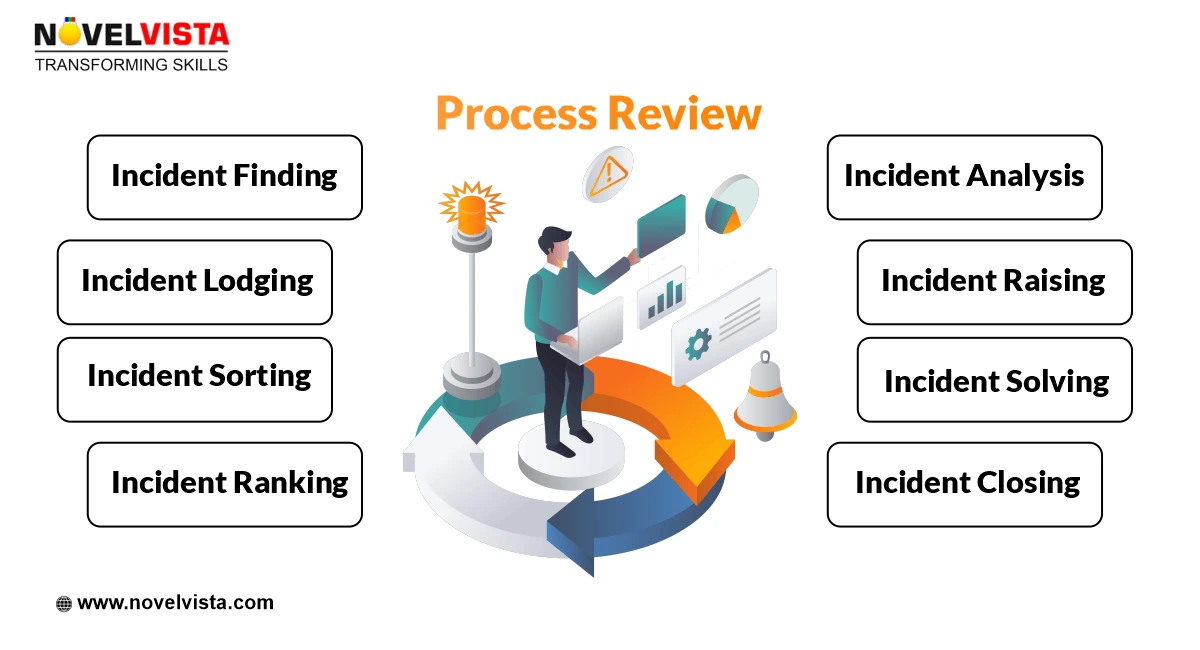Technological advancement has gone a notch higher, and fast incident management is paramount in order to ensure the smooth running of IT systems and most importantly to avoid deterioration of the customer's experience.
According to the guidelines of ITIL V4 incident management, an effective incident management procedure could be developed that will help an organization improve its situation regarding IT issues.
Based on our research, this article will explain ways to improve ITIL V4 Incident Management processes in your organization.
It is imminent that at the centre of any successful approach to the ITIL V4 incident management process must lie a properly developed service desk.
They are the first port of call for the reporting of incidents and are also significantly involved in decision-making about the formulation of strategies crucial to minimizing these incidents.
To excel at the service desk, the professionals should segregate the service desk into different levels, which will allow grouping of the most important cases and incidents that need attention, and others that can wait for a while.
Apart from that it saves resources and does not let some important events remain unnoticed and unaddressed.
It is found that having a more rigid and disciplined service desk organization can result in a dramatic cumulative incident resolving to the tune of20 percent.
It has also urged quicker resource allocation in order to boost efficiency and improve priority management. When applied, this approach of classification will reduce the number of incidents an organization will handle and improve its operations and service delivery as a whole.
The first of these basic concepts is, of course, the principle of resolving incidents at the lowest level possible.
Besides, it also helps in reducing the time that is required to solve cases and provides the opportunity for the specific departments to work on cases that are most suitable for them.
Therefore, the analysis of such metrics offers beneficial information about the aspects that require enhancement, namely the spheres that contribute to the improvement of the escalation processes with time.
It is therefore important that staff are trained in good practices for incident management as part of staff development.

Some of the ITIL certifications are ITIL foundation and ITIL managing professional that prepares its holder to manage incidents appropriately.
According to available literature, teams that have been trained to respond to them can do so at least30% fasterthan those that are not trained on how best to handle such incidents. Such a remarkable enhancement of efficiency is indicative of further education and training of people who are involved in IT service management.
NV ITIL Foundation Trainingis an ideal training program for organizations that wish to increase their team’s ITIL knowledge portfolio based on ITIL V4 standards.
Compared to other training that solely focuses on the process of incident management, this training offers the overall understanding of the ITIL plus equips your team to perform well in various aspects concerning IT service management.
Being able to share information effectively and at the right time for the different phases of the incident is imperative to closing and customer satisfaction.
It is nearly impossible for organizations to prevent all incidents; however, it is important to keep all the stakeholders aware of the status of those incidents and the efforts that are being taken to mitigate them to reduce frustration.
With the solution of integrating automated updates, the support of the service desk can be greatly offloaded, while the users are kept informed all the time.
One of the biggest shifts is creating and sustaining accurate and complete knowledge of events.
It makes sense to incorporate information about successful outcomes and establish libraries of solutions to slightly enhance response times and diminish the recurrence of problem-related situations.
Anotherstudyrevealed that organizations that engage in the regular update of the knowledge base can cut down the time taken to resolve an incident by up to50%.
Such a staggering improvement is because teams have an easy time accessing documents that have documented solutions to similar issues in the past.
Implementing a Continual Service Improvement (CSI) program is crucial for organizations looking to stay ahead in incident management.
By regularly assessing and refining their processes, companies can adapt to changing needs and continuously enhance their service quality.
Researchindicates that organizations implementing a CSI program see a15% increasein overall service quality and customer satisfaction over time.
This ongoing commitment to improvement ensures that incident management processes remain effective and aligned with organizational goals.
Understanding the incident management process ITIL V4 principle is important. Streamlining incident management procedures requires a significant amount of automation.
Utilizing IT Service Management (ITSM) tools to automate incident detection and logging can significantly reduce manual errors and catch issues early.
This proactive approach not only improves response times but also helps prevent minor issues from escalating into major incidents.
🛠️ Restore services with structured workflows.
Implementing ITIL V4 Incident Management best practices can transform an organization's ability to handle IT-related issues effectively.
By focusing on structured service desk operations, minimizing escalations, investing in training and certification, prioritizing clear communication, leveraging knowledge management, embracing continual improvement, and harnessing the power of automation, organizations can significantly enhance their incident management capabilities.
If affected, Incident Management ITIL V4 focuses on quickly restoring normal service operations to minimize business impact. Effective incident management is not a one-time process, but an ongoing journey of continuous improvement.
You can improve IT service quality and incident resolution times by consistently applying the ITIL V4 incident management process and best practices and staying committed to excellence.
Take the first step towards transforming your incident management processes today. Explore ourNV ITIL Foundation Trainingto equip your team with the knowledge and skills needed to excel in ITIL V4 practices, including incident management.
With the right approach and tools, your organization can turn every incident into an opportunity for learning, improvement, and enhanced service delivery.
Thank you for reading!
Confused about our certifications?
Let Our Advisor Guide You